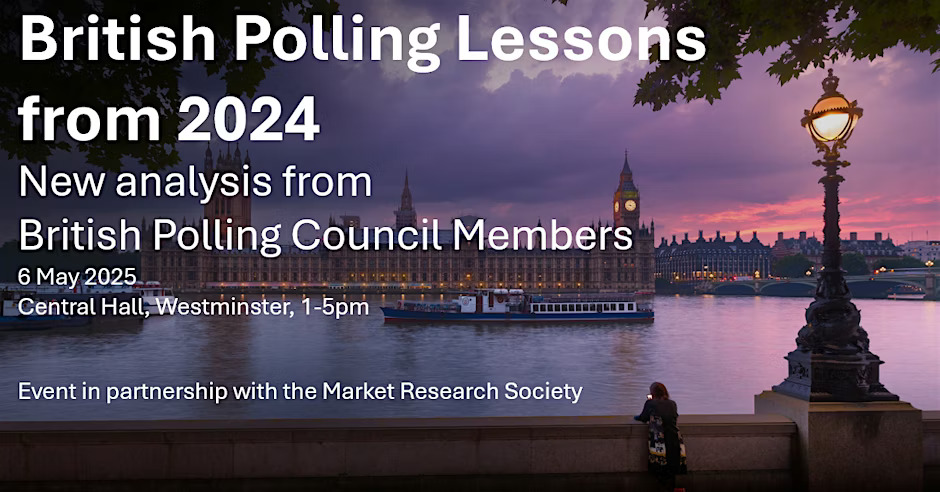
Event: British Polling Lessons from 2024
The British Polling Council held an open event on 6th May where we will be exploring the lessons learned from the recent UK general election and its aftermath.
Practitioners from across the polling sector shared latest findings of their post-election analysis. They were joined by representatives of the academic, media and political communities, who also shared their perspectives,
Here is a short summary of some of the themes emerging from the event.
• Systematic polling error: Most pollsters overestimated Labour’s vote share in the recent election – the largest overestimation of Labour since 1979. This reflects a historical pattern where UK polls often overstate Labour support, though the specific causes remain unclear despite multiple potential factors being discussed.
• Methodological challenges: Several technical polling issues were examined, including demographic weighting (particularly for education, age groups like 75+, and ethnicity), handling of “don’t knows” and refusals, and the significant problem of declining response rates leading to potential differential non-response bias. Pollsters are awaiting the British Election Study random probability post-election survey for greater insight into the potential impacts of differential non-response bias in 2024.
• MRP polling developments: MRP (Multilevel Regression and Post-stratification) constituency-level polling was a major focus, with discussions about its growing importance but also limitations — particularly in unusual constituencies with independent candidates or local factors. Experts called for increased transparency in how these complex models work and better communication of uncertainty, especially for individual constituency estimates.
• Media representation concerns: There was significant worry about how polls (especially MRPs) are presented by journalists, who often treat projections as certainties rather than estimates with margins of error. This can potentially damage polling credibility and inappropriately influence campaigns and voters.
• Future recommendations: Suggestions included developing standardised guidelines for MRP reporting, improving handling of late-deciding voters, embracing methodological pluralism, exploring mixed-method approaches, and enhancing transparency – all while acknowledging that 2028/29 may present even greater polling challenges due to fragmentation, especially for MRP estimates and their uncertainties given knife-edge races.
Download the slides here (23MB pptx)
For more information and resources, please see our 2024 General Election Page